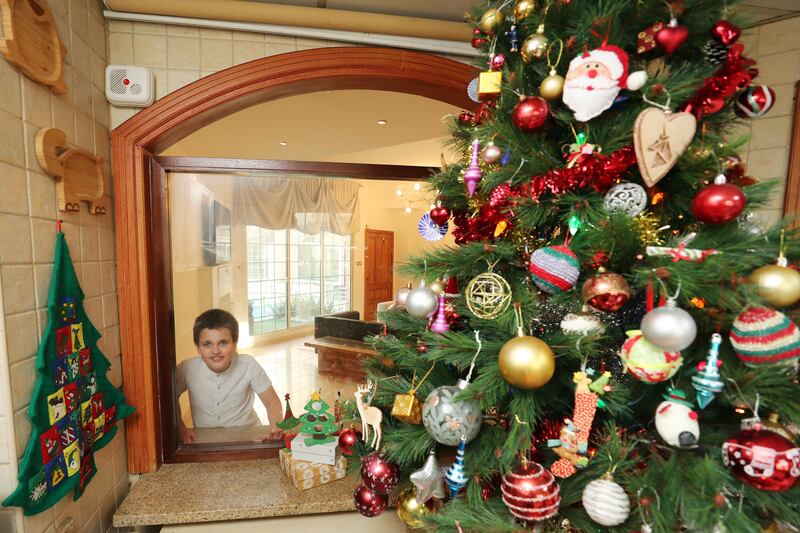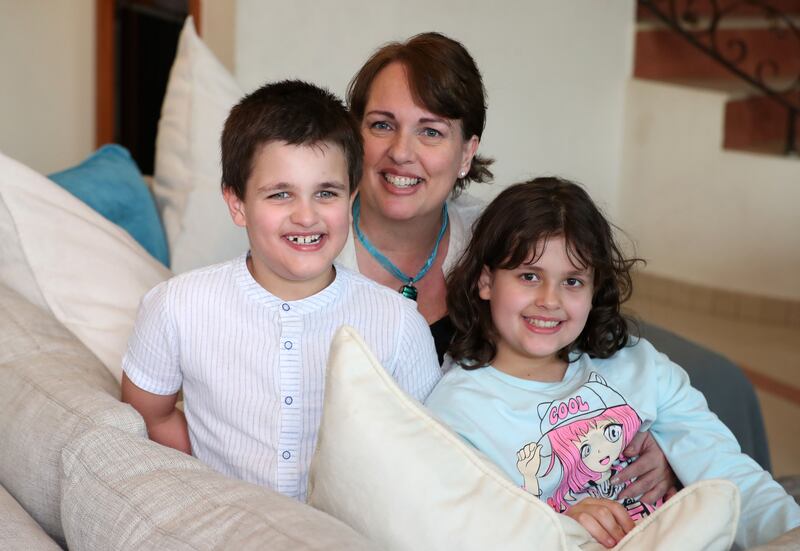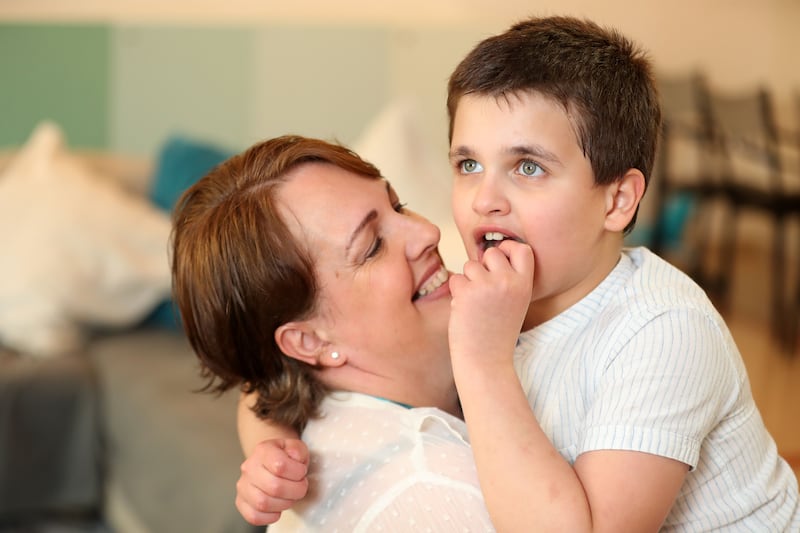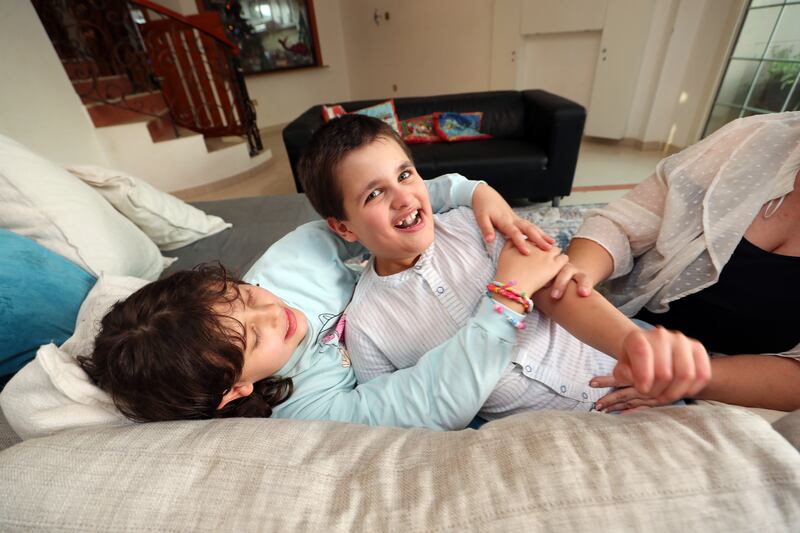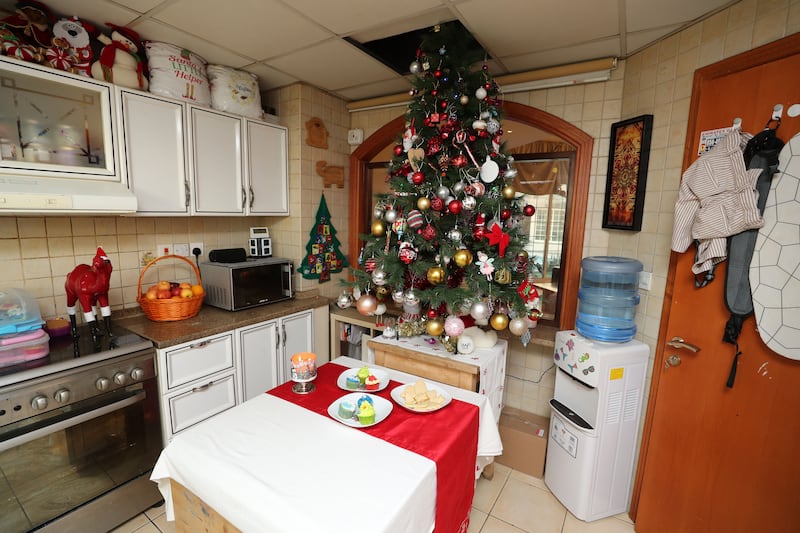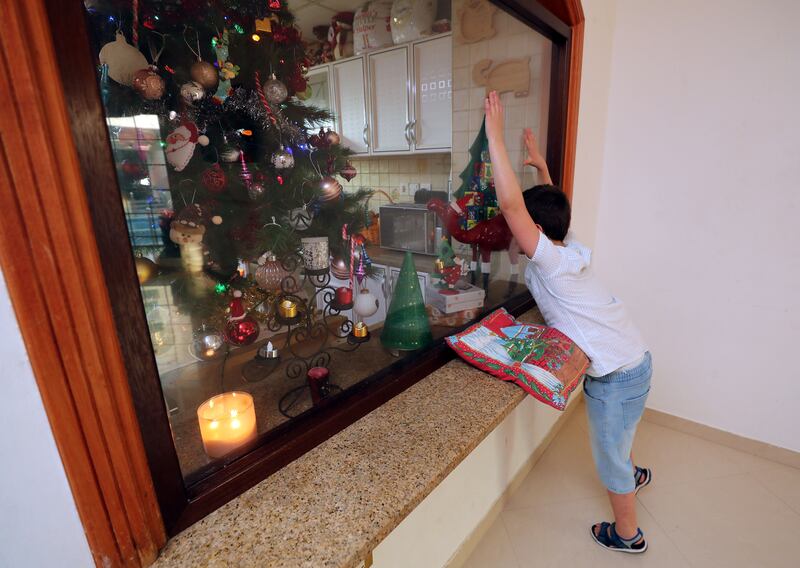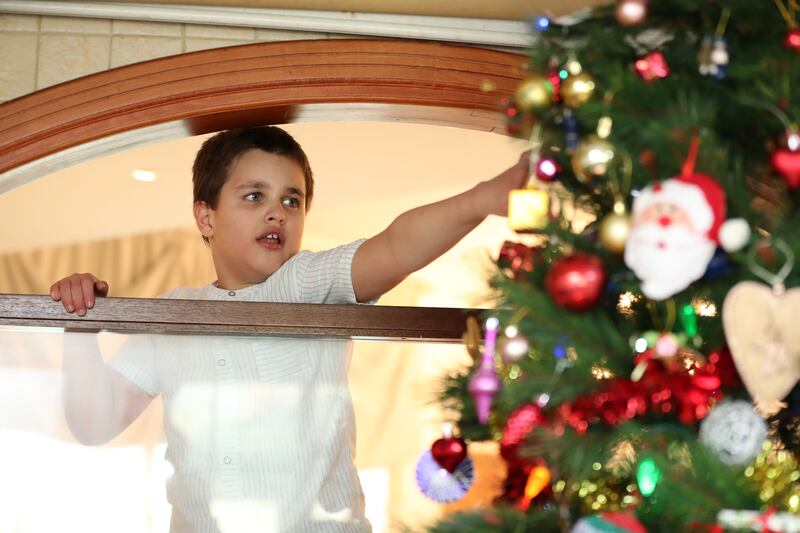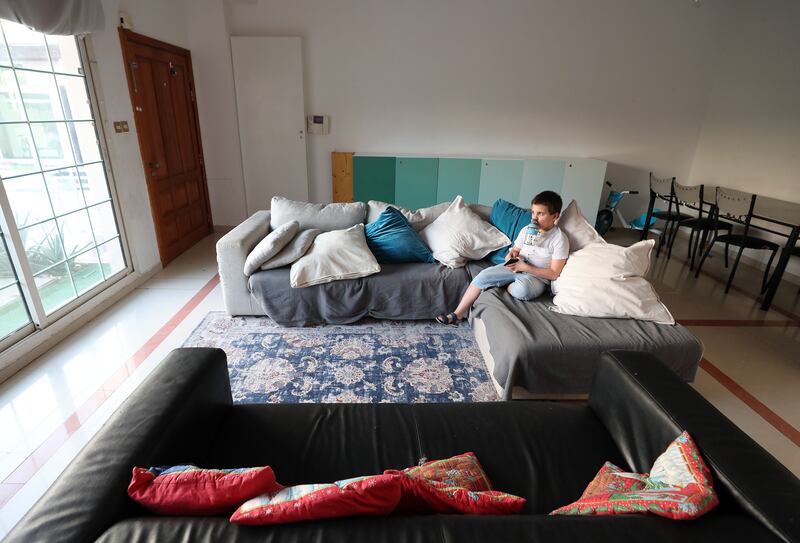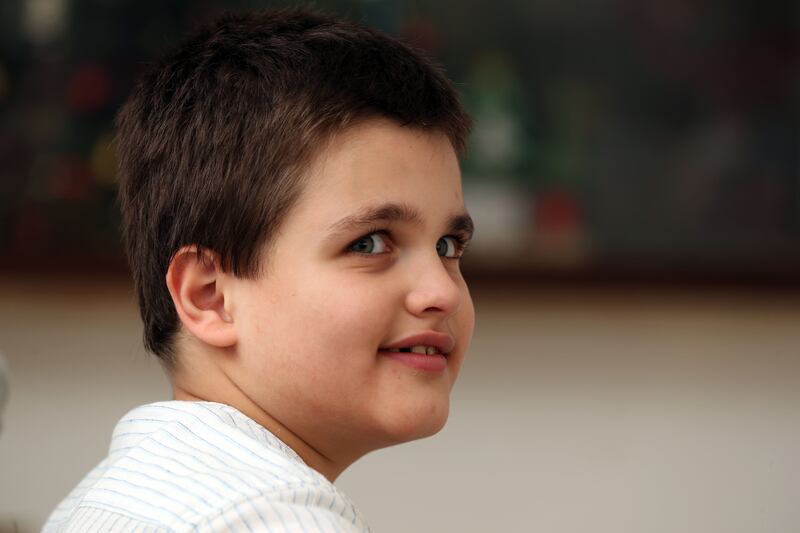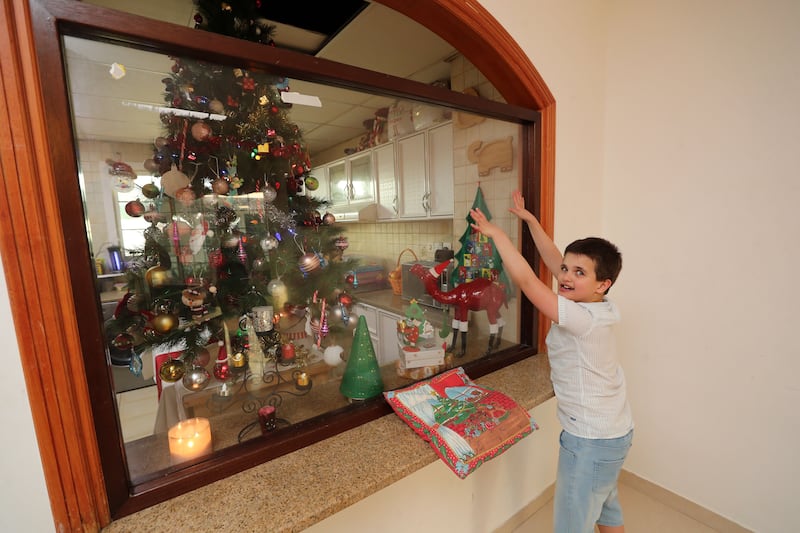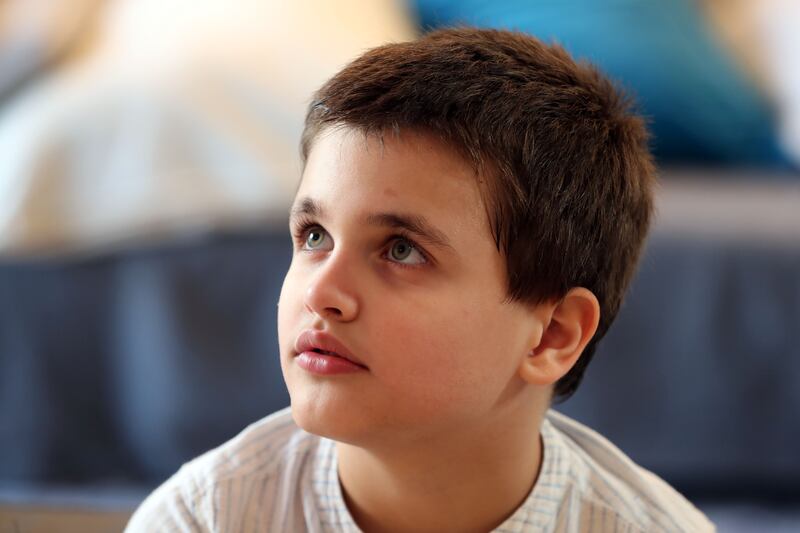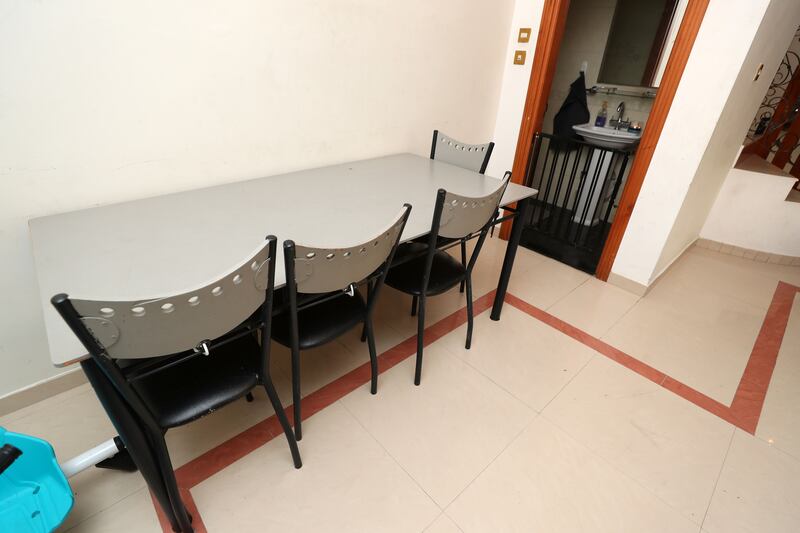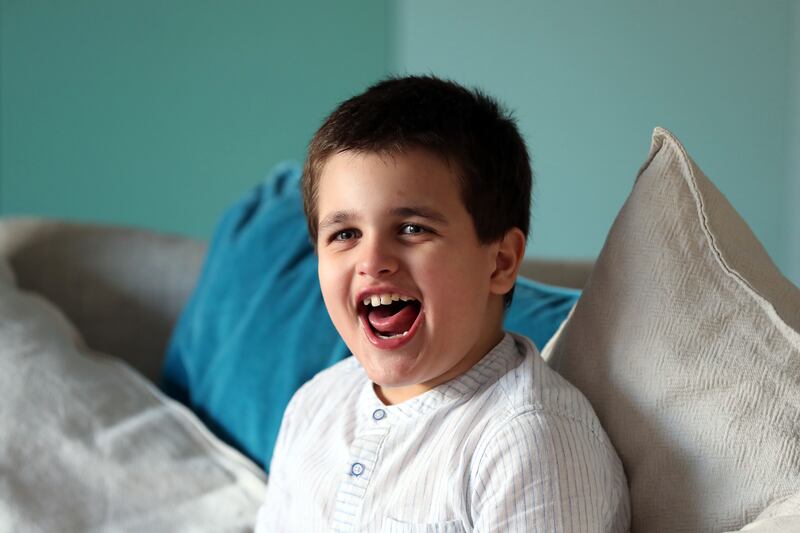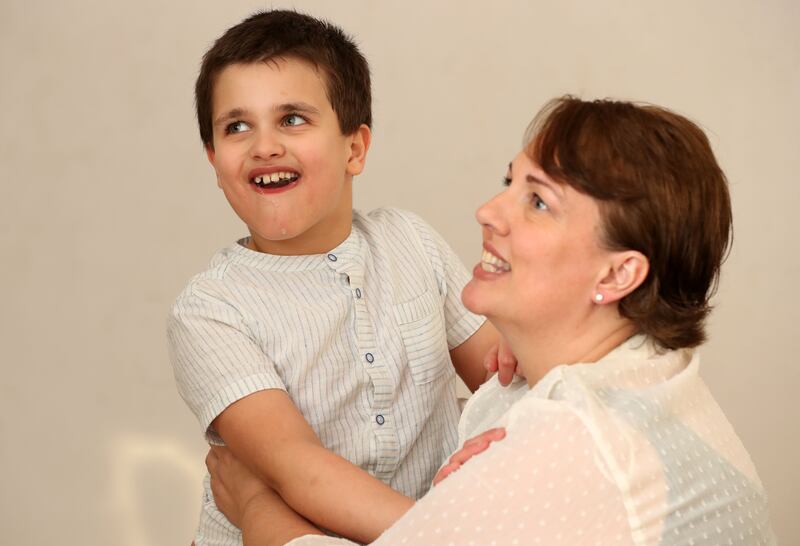Extravagant Christmas trees embellished with crystal ornaments, tables decked with eye-catching decorations, elegant tapestries and flashy string lights — some people go all out to imbibe the festive spirit. It's different for long-time Dubai resident Emily Ray.
When you enter her house in Mirdif, you will notice it's bare — white tiles, a leather couch and a dining table with chairs bolted to it. Ms Ray's Christmas decorations are tucked away in the kitchen, cordoned off with a gate, in consideration of her son Sam, who has a rare genetic disorder.
“There are things we have to do to still be able to celebrate Christmas, with all the idea of the decorations, bearing in mind we have a child who doesn't understand instructions and danger, a child who won't ever stop destroying stuff because that's what he thinks is fun,” she tells The National.
Sam, 7, has Angelman syndrome , a genetic disorder that primarily affects the nervous system and occurs in one in about 15,000 people.
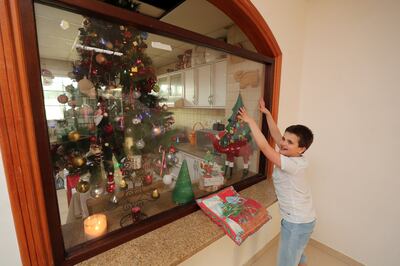
The condition is associated with delayed development, and notable behaviour especially among children includes: excitement, pulling hair, hugging and a short attention span, as well as grabbing objects and people in their surroundings.
This has presented a unique challenge for Ms Ray's family, who have had to adapt their home to Sam's needs.
“Our house is not like anyone else's house. All the cables, everything, are tidied away; all the knobs are flat; the chairs are attached to the table; the curtains are rolled halfway up so he can't pull them down; and we have gates everywhere,” she says.
This also informs how she decorates her house on special occasions such as Christmas.
“When Sam was little, and he was not as tall as he is now, the Christmas tree would be hanging from the ceiling, and we used to have bookcases that we put ornaments on top of,” she says, explaining they can't do it now because Sam has grown taller and stronger.

“Everything is in the kitchen, and it obviously stops Sam from getting to them. It's not safe for him and it's not safe for the Christmas tree,” she says with a chuckle.
Ms Ray describes seeing houses with classic Christmas decorations as bittersweet, saying, “You sometimes wish that your house could look like a typical house. When I had a seven-year-old, I was not expecting to have toddler's toys in my house any more. I expected to have my books, my ornaments and my plants.
“Sometimes I look at those houses and think, ‘That must be so nice for a family who doesn't have to think about a child like Sam.’”
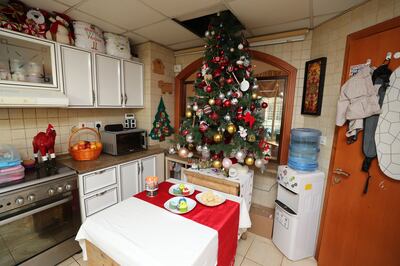
However, this has not stopped Ms Ray from making sure they still celebrate Christmas in one way or another. She also has a daughter, Maya, eight.
“It's been a celebration for us since I was a child, and it's important for my daughter, too. Just because you have a child who has no idea what Christmas is, it doesn't mean you can't enjoy it,” she explains.
“Sam is different, but he is not less [of a child]. It doesn't mean that he can't live a fairly typical life. We just have to make adjustments. We have to think outside the box.”
Ms Ray takes Sam to visit Santa, which she says he enjoys a lot.
“When he sees new people, he's happy,” she adds.
“He loves going to Santa's grottos, and luckily two of the Santas here are my friends. Whenever we're going, I warn them in advance and I say, ‘We're coming today, get ready for Sam'.”
Over the years, Ms Ray has learnt to ensure Sam's safety when it comes to visiting crowded places.
“We have to be very vigilant because he can be very fast, and as much as we can, we try to pre-empt anything that might go wrong,” she says.
“We also have to rely a lot on people's understanding that he is not a neurotypical child. We have to hope that the people we meet will understand.”
Ms Ray says it also depends a lot on the availability of people of determination facilities in places they go to, particularly mentioning Santa's grotto in Wafi City Mall which has priority access.
In cases where these facilities aren't available, Ms Ray says: “You have to be strong enough and feel that you're able to advocate for him, because he has no voice.”
This happened recently at Dubai Expo City's Christmas tree lighting, where Ms Ray convinced the staff to let them cross the barricade and allow Sam to enjoy the event as much as anybody else.
“He was able to take part, live it and enjoy it, the same as someone else outside of the barrier who is taller or a child who can sit on someone's shoulders safely,” she explains. “You always have to think 'what is happening at the moment and how can I improve it for Sam', so he can have the same experiences.”
Last year was particularly remarkable for Ms Ray, when they were invited for a Christmas Day lunch hosted by another Dubai resident, who got in touch on Facebook. She met other single mothers during the lunch, and they all kept in touch afterwards.
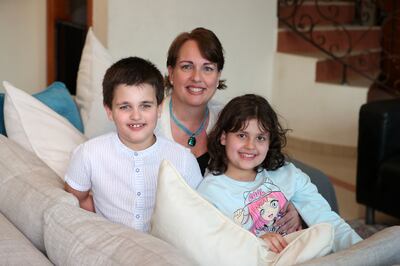
Holding back her tears, Ms Ray says: “We all joined together for this Christmas lunch. We kept in touch for the whole year, and we still support each other. We are all single mothers doing our best, doing what we can for our children.
“It was a special meal, but it wasn't just a meal,” she says. She adds that she cherishes these experiences, which wouldn't have happened if she didn't have Sam.
“Those experiences come about because of the power of Sam. He doesn't even talk, and he doesn't need to. He touches and connects people, and makes them smile.”
It is clear how much Sam has changed the meaning of Christmas for Ms Ray and her family, made even more poignant by the special Christmas Day lunch on a beachfront venue on The Palm Jumeirah, which they are also doing this year.
“It was not about where we were. It's got nothing to do with that. It's about Sam being accepted,” she says.
“Not everybody's Christmas is the same. It is what you make it to be.”
